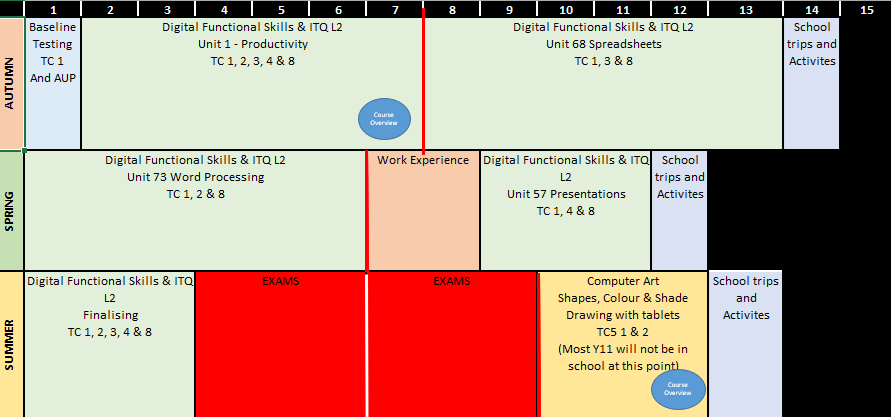

ICT & Computing
Our vision for teaching ICT & Computing is to expose our students to a broad range of digital skills, to raise their eyes to the opportunities available to them, and to inspire them to progress in the world when they leave us.
We want them not to be disadvantaged in an increasingly digital world (both social and work) and to this end, we offer a broad range of digital skills and approaches which pupils can apply across the curriculum.

In addition to this, we will help them understand how to navigate the electronic world safely on their devices, both at school and home, and to be good virtual citizens.
We also have an E-safety guidance page for students and parents.
Qualification routes – NCFE Functional skills, Computer Science GCSE.
ICT and our six core values
Balance
KS3 are exposed to a wide range of software: spreadsheets, desktop publishing, presentations, graphical and scripted coding, 3D & Graphic design, as well as learning about how ICT is used in the real world and security both online and offline. Working towards Functional Skills starts in year 9.
KS4 are more focussed on achieving their Functional Skills and ITQ L2 qualifications. They gain a deeper understanding of how ICT is used in the world of work and further education.
Communication
Pupils are encouraged to explore the software and collaborate with each other to achieve their goals. Pupils who have a natural propensity for the subject area will act as super-users for the class and help others that are not working at the same level.
Going Beyond Your Borders
The broad base exposure in KS3 encourages pupils to try new things and to push themselves to continually improve their work.
KS4 are stretched through more workplace-based standards of presentation and approach.
Resilience
Not everything pupils do works first time. Processes like code de-bugging help pupils understand it is alright to make mistakes and learn from them. Frustrations can arise when a pupil's vision is not matched by what they can create. They are encouraged to review their steps and discover where improvements can be made. Exams can also be a test of many pupils' resilience. Exam skills are taught, so students are not only familiar with the structure of the exam but also able to work independently through the paper.
Reflection
Planning ahead and envisioning predicted outcomes are key skills in ICT. Pupils learn the Plan, Do, Review approach:
📝Plan the work
💻 Do the work
🔎 Review the work to look for improvements
Independence
Pupils are encouraged to work independently as much as possible, developing an inquisitive mind where trying and failing is key to learning to succeed in the future. Exam writing requires independent thought and recall. These are skills that are revisited many times, especially in KS4. Students working towards the ITQ L2 qualification are expected to work independently for the most part, asking for guidance where needed.
Overview of Work
Year 7
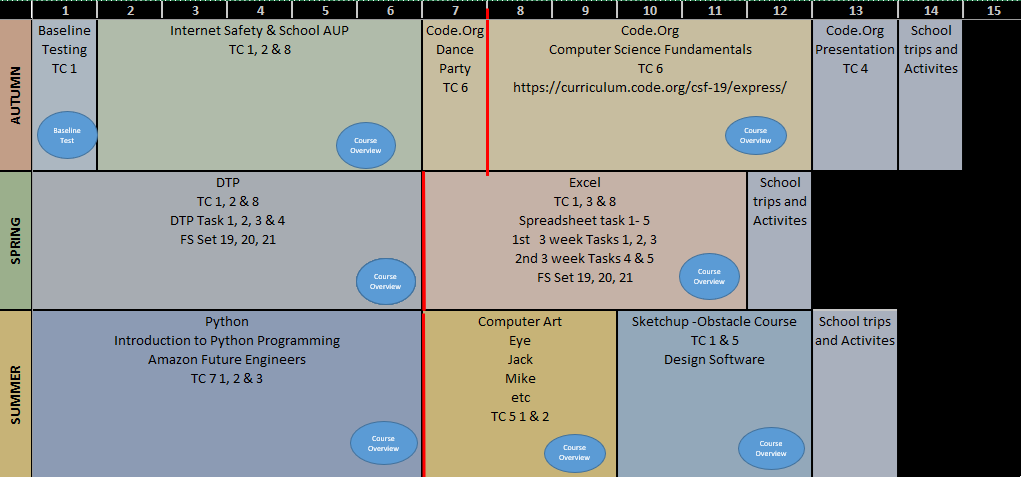
Year 8
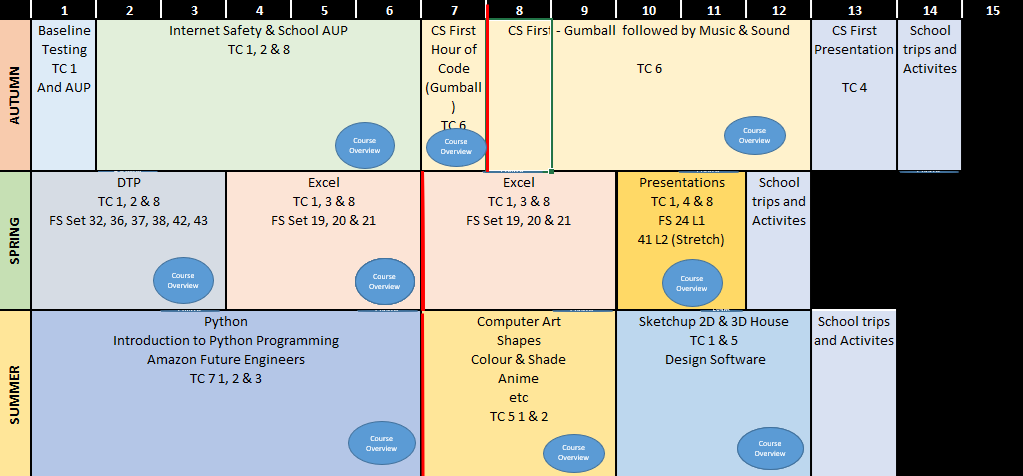
Year 9
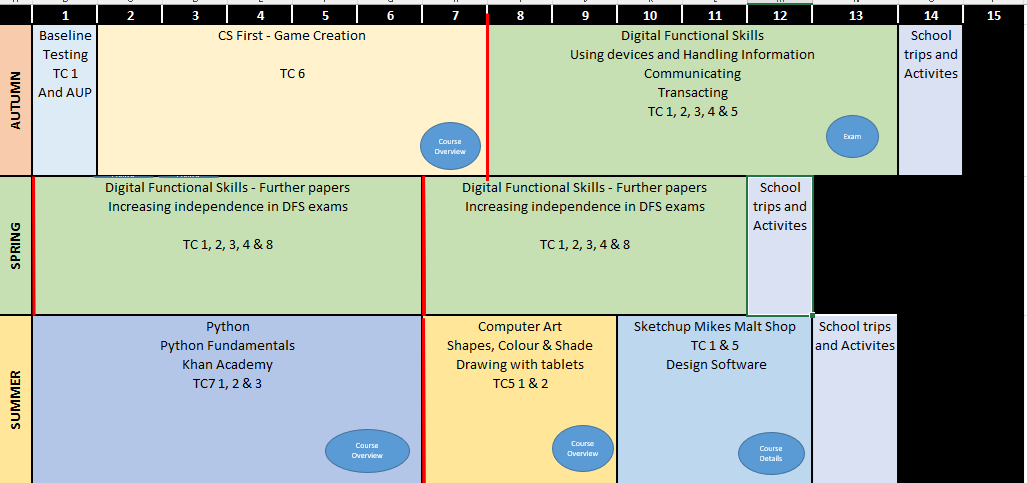
Year 10
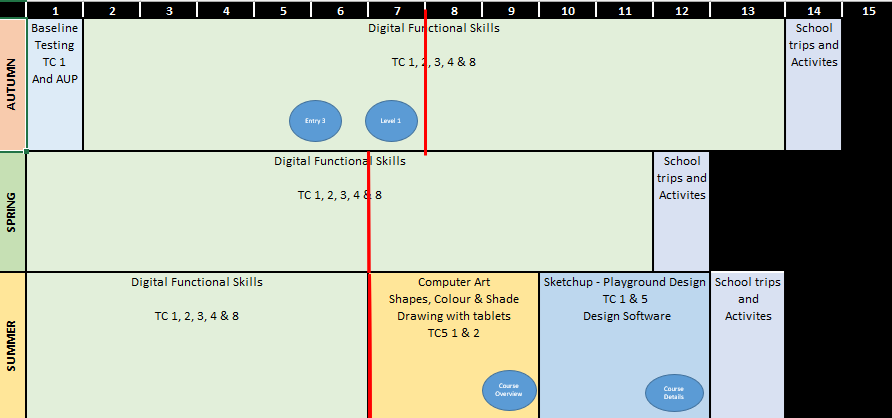
Year 11
